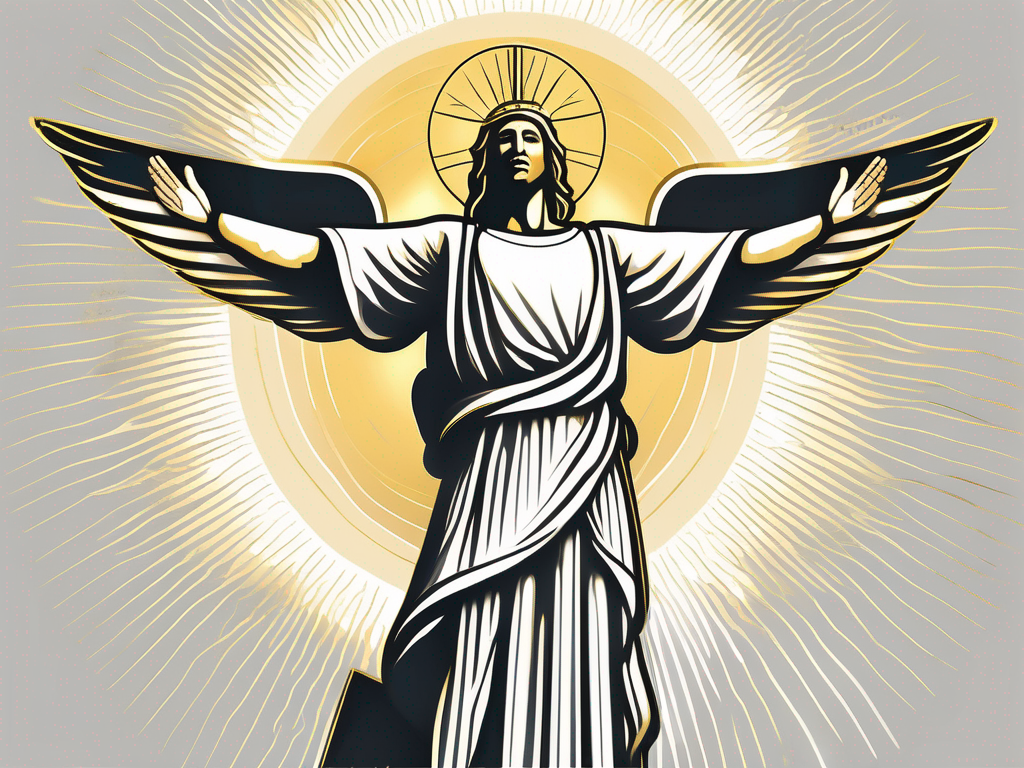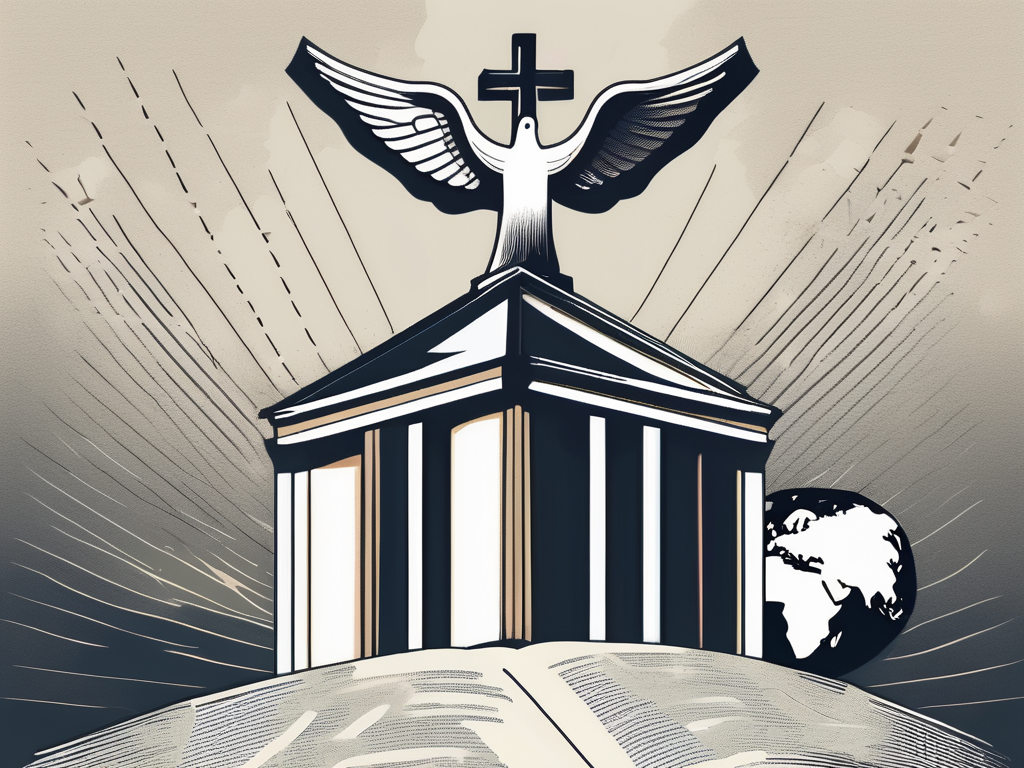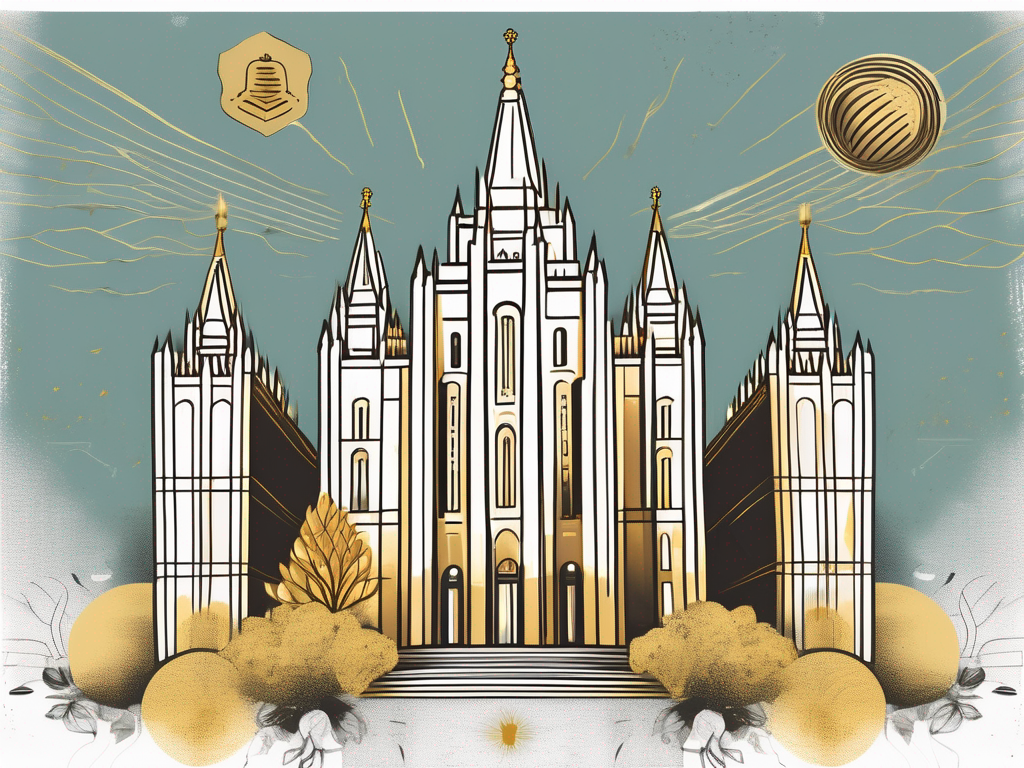In this article, we will delve into the fascinating world of Evangelicalism and Mormonism. These two religious movements have distinct beliefs and practices that set them apart from each other. By exploring their key teachings, historical background, and modern relevance, we can gain a deeper understanding of the theological differences and shared traditions between Evangelicals and Mormons. So, let’s embark on this comparative journey!
Understanding Evangelicalism
Before we dive into the comparisons, let’s first explore Evangelicalism itself. As a vibrant and diverse movement within Protestant Christianity, Evangelicals emphasize the importance of a personal relationship with Jesus Christ. For them, the heart of their faith lies in the belief in Jesus’ death and resurrection as the means of salvation.
Evangelicalism is a multifaceted movement that encompasses a wide range of beliefs, practices, and cultural expressions. While there are common threads that bind Evangelicals together, it is important to recognize the diversity within this community.
One of the key beliefs of Evangelicals is their strong emphasis on the authority of the Bible. They consider it the inspired word of God and believe that it provides guidance for all aspects of life. The Bible is seen as the ultimate source of truth, and Evangelicals strive to live according to its teachings.
Another fundamental belief of Evangelicals is the concept of salvation through repentance and faith in Jesus. They believe that every individual has the opportunity to be saved and experience a personal transformation through their relationship with Christ. This emphasis on personal conversion is at the core of Evangelical theology.
Evangelicals also prioritize spreading the Gospel and actively engaging in missionary work. They believe that it is their responsibility to share the message of salvation with others, both in their local communities and around the world. This commitment to evangelism is often accompanied by a deep sense of compassion and a desire to meet the physical and spiritual needs of those they encounter.
In the context of worship, Evangelicals are known for their passionate singing and heartfelt prayer. Their worship services often involve lively music, with congregants enthusiastically participating in praise and worship. This vibrant expression of faith is a reflection of the joy and gratitude that Evangelicals feel towards God.
Historical Background of Evangelicalism
The roots of Evangelicalism can be traced back to the 18th-century Great Awakening, a period of religious revival in Europe and North America. During this time, there was a renewed emphasis on personal piety and spiritual awakening. Evangelical preachers such as George Whitefield and Jonathan Edwards played a significant role in igniting this spiritual fervor.
The Great Awakening drew people from various denominational backgrounds, as individuals sought a deeper and more personal experience of faith. It was a time of intense religious enthusiasm, with large gatherings and powerful sermons stirring the hearts of many. This spiritual movement laid the foundation for what would later become known as Evangelicalism.
Over time, Evangelicalism evolved and adapted to cultural shifts. In the 19th century, Evangelicals played a prominent role in social reform movements, such as the abolition of slavery and the fight for women’s rights. This commitment to social justice and activism has continued to be a defining characteristic of Evangelicalism throughout history.
Evangelicalism in Modern Society
In contemporary society, Evangelicals remain influential, especially in North America. They have a significant presence in politics, education, and social welfare. Many Evangelicals actively engage in political activism, advocating for policies aligned with their beliefs on issues such as abortion, same-sex marriage, and religious freedom.
However, it’s important to note that Evangelicalism is not a monolithic movement. Within the Evangelical community, there is a wide range of theological perspectives and cultural expressions. Some Evangelicals may hold more conservative views, while others may adopt a more progressive stance on social and political issues.
Despite their differences, Evangelicals are united by their shared commitment to Jesus Christ and the belief in the transformative power of the Gospel. They continue to play a significant role in shaping the religious landscape and contributing to society through their faith-based initiatives and charitable work.
Exploring Mormonism
Now, let’s turn our attention to Mormonism, also known as The Church of Jesus Christ of Latter-day Saints. Founded in the early 19th century by Joseph Smith, this unique American religious movement has gained worldwide recognition. Mormons believe that their church is a restoration of true Christianity, which they argue faded away after the early Apostolic period.
Mormonism, with its rich history and distinctive beliefs, has captivated the minds and hearts of millions around the globe. Let’s delve deeper into the fundamental teachings and rituals of Mormons, the origins and growth of this remarkable faith, and its role in society today.
Fundamental Teachings and Rituals of Mormons
At the core of Mormon belief is the Book of Mormon, which Mormons regard as an additional testament of Jesus Christ alongside the Bible. This sacred text, believed to be translated by Joseph Smith, provides a unique perspective on the life and teachings of Jesus Christ. It serves as a spiritual guide, offering insights into the divine plan of salvation.
In addition to the Book of Mormon, Mormons also believe in modern revelation through living prophets who receive direction from God. These prophets, considered to be inspired leaders, guide the church and its members through divine inspiration and revelation. This belief in ongoing revelation ensures that the church remains relevant and adaptable to the changing times.
Mormons actively practice baptism, both for the living and the dead, as they believe they can offer salvation to their ancestors through this sacred ordinance. This practice, known as proxy baptism, allows Mormons to perform baptisms on behalf of deceased individuals, giving them the opportunity to accept the gospel in the afterlife.
The Origins and Growth of Mormonism
Mormonism began in upstate New York when Joseph Smith claimed to have visions and encounters with Heavenly beings. These divine manifestations led to the restoration of the gospel and the establishment of The Church of Jesus Christ of Latter-day Saints. Smith translated the Book of Mormon from ancient golden plates, which he said were revealed to him by an angel named Moroni.
The early years of Mormonism were marked by persecution and hardship. Despite facing numerous challenges, the faith continued to grow, attracting followers who were drawn to its unique teachings and promises of eternal salvation. As the church expanded, it spread its message across the United States and eventually reached different parts of the world, gaining a global following.
The Role of Mormonism Today
Modern-day Mormons place great importance on family, with a focus on eternal relationships. They believe that families can be together forever, not just in this life but also in the afterlife. This belief strengthens the bonds between family members and encourages a deep sense of love, support, and unity.
Mormons are also known for their strong emphasis on education and personal development. They believe in the pursuit of knowledge and encourage their members to seek education in various fields. This commitment to education has led to the establishment of prestigious universities and educational institutions affiliated with the church.
Additionally, Mormons engage in service and humanitarian work, contributing to various projects worldwide. Their faith teaches them the importance of reaching out to those in need and making a positive difference in the lives of others. Whether it’s through disaster relief efforts, community service initiatives, or humanitarian aid projects, Mormons strive to embody the principles of compassion and service.
Their temples, where sacred ordinances and ceremonies take place, serve as central gathering places for worship. These beautifully crafted buildings are considered sacred spaces where individuals can draw closer to God and participate in sacred rituals such as marriages, baptisms, and other ordinances. Temples are seen as a place of peace, reflection, and spiritual renewal.
In conclusion, Mormonism is a vibrant and dynamic faith that continues to shape the lives of millions worldwide. Its unique teachings, rituals, and emphasis on family, education, and service make it a distinctive religious movement that has left an indelible mark on the religious landscape.
Theological Differences between Evangelicalism and Mormonism
Now that we have explored the foundations and practices of both Evangelicalism and Mormonism, let’s delve deeper into the fascinating theological distinctions between these two religious traditions.
Views on God and Jesus Christ
Evangelicals believe in the Holy Trinity—Father, Son, and Holy Spirit—as one divine being. This concept of the Trinity is rooted in the belief that God is eternally existent in three persons, yet unified in essence. In contrast, Mormons believe in a Godhead consisting of three separate divine beings: God the Father, Jesus Christ, and the Holy Spirit. They view these three entities as distinct individuals, each having a physical body. Mormons also believe that God was once a mortal man who progressed to become a God, emphasizing the potential for human beings to attain godhood themselves.
Within Evangelicalism, the divinity of Jesus Christ is central to their faith. They believe that Jesus is the Son of God, who became incarnate as a human being to redeem humanity from sin. Mormons, on the other hand, share the belief in Jesus Christ as the Son of God, but they also believe that Jesus is a separate and distinct being from God the Father. Mormons consider Jesus Christ to be the literal offspring of God the Father and a heavenly mother.
Perspectives on Salvation and Afterlife
Evangelicals teach that salvation comes solely through faith in Jesus Christ. They emphasize the concept of “justification by faith,” asserting that individuals are saved by God’s grace alone, apart from any human effort or merit. In their view, salvation is a free gift from God that cannot be earned or achieved through good works. Evangelicals believe in the assurance of eternal life in heaven for those who have accepted Jesus Christ as their Lord and Savior.
On the other hand, Mormons believe that salvation includes faith, good works, and adherence to specific Latter-day Saint ordinances. They emphasize the importance of personal righteousness and obedience to God’s commandments as essential elements of salvation. Mormons also believe in different levels of heaven, where individuals can progress spiritually after death. They believe that through continued obedience and adherence to the teachings of the Mormon Church, individuals can attain exaltation and become gods themselves, ruling over their own celestial kingdoms.
Interpretations of the Bible
Evangelicals view the Bible as the ultimate authority in matters of faith and practice. They believe that the Bible is the inspired and inerrant Word of God, containing all the necessary teachings for salvation and Christian living. Evangelicals strive to interpret the Bible in a literal and historical context, seeking to understand the original intent of the biblical authors.
In contrast, Mormons consider the Bible alongside the Book of Mormon, Doctrine and Covenants, and Pearl of Great Price as scripture. They believe that these additional texts provide vital knowledge and clarification of lost or incomplete teachings. Mormons view the Book of Mormon as another testament of Jesus Christ, which they believe was translated by the prophet Joseph Smith from ancient golden plates. They also believe that the Doctrine and Covenants contains revelations given to modern-day prophets, providing guidance and instruction for the Church of Jesus Christ of Latter-day Saints.
By incorporating these additional scriptures, Mormons believe they have a more complete understanding of God’s plan for humanity and the teachings of Jesus Christ.
Similarities in Evangelical and Mormon Traditions
Despite their theological distinctions, Evangelicals and Mormons share some common ground in their traditions and practices.
Shared Values and Ethics
Both Evangelicals and Mormons prioritize family, moral values, and personal integrity. They emphasize living an upright and responsible life, contributing positively to society, and striving for personal holiness.
Common Practices in Worship and Community Life
Evangelical and Mormon congregations often gather for regular worship services, which typically include singing hymns, listening to sermons, and engaging in prayer. Both traditions also foster a sense of community through various activities, such as youth groups, service projects, and social events.
Closing Thoughts
As we conclude our comparative analysis between Evangelicalism and Mormonism, it is evident that while these religious movements differ in significant ways, they also share certain fundamental values and practices. By understanding both their distinctions and commonalities, we can foster respect and dialogue among those of different religious backgrounds. Ultimately, the diversity of belief systems enriches our collective human experience and promotes tolerance and understanding in an increasingly interconnected world.












